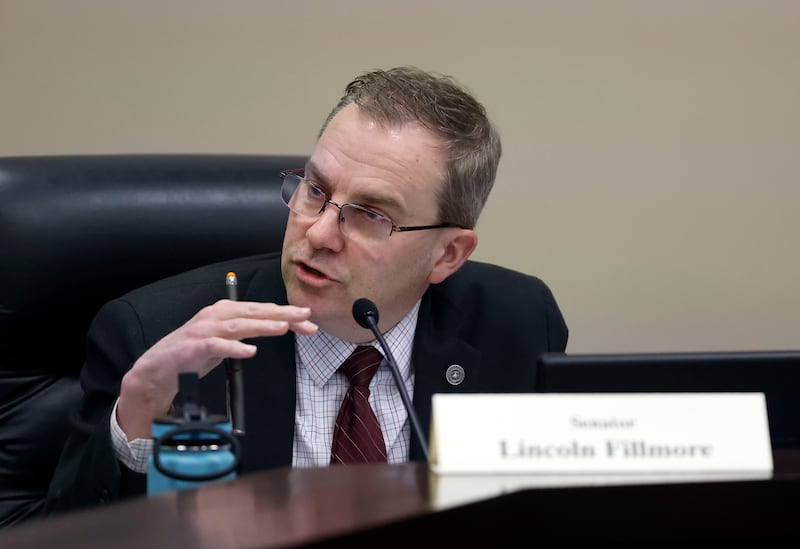Last month, New York Gov. Kathy Hochul told certain Republicans in her state to “jump on a bus and head down to Florida where you belong, OK? Get out of town because you don’t represent our values. You are not New Yorkers.” That followed similar comments from her predecessor, Andrew Cuomo, who said in 2014 that people who hold conservative views on issues like abortion and the Second Amendment “have no place in the state of New York because that’s not who New Yorkers are.”
Before I connect these comments to a broader picture, let me make a few necessary disclosures. I am an elected Republican with a conservative voting record serving in Utah’s state Senate. I’ve been a registered Republican since I was eligible to vote. Though the examples I highlighted above are from two Democratic politicians, I know that their divisive language is not unique to their state nor their party. Rather, their language and the sentiment it conveys are symptoms of larger forces shaping politics nationwide. Let me also stipulate that I’m an imperfect messenger for the message I hope to convey.
New York is a solidly Democratic state. President Joe Biden won nearly 61% of the vote there. Its congressional delegation is overwhelmingly Democratic as are both houses of their state legislature. In that way, it is somewhat the mirror image of Utah, where Republicans hold every statewide and federal office and massive majorities in the state legislature.
Looking at election results, Utah is probably even more Republican than New York is Democratic. Though our respective parties command large majorities of both voters and elected officials in each state, I cannot imagine feeling anything like New York’s current and former governors feel.
Democrats are not my enemies. They are my neighbors. They literally live next door, down the street, and across town. We disagree on many issues of politics and public policy. Yet, we go to church together. We weed our neighbors’ yards together. Over Labor Day, we were camping together as part of a 38-year tradition of neighbors and friends spanning three generations. I coach their children in Little League.
When I’m helping a 6-year-old keep his knees bent and his glove touching the dirt to field a ground ball, the furthest thing from my mind is whether this boy’s parents voted for Jenny Wilson or Trent Staggs for county mayor. Or even if they voted for me or my opponent. Such things are irrelevant to whether this boy can keep his back elbow up and his eye on the ball when he’s learning to hit a 30 mile-per-hour baseball.
Democrats are just as good at pulling weeds as Republicans. And they also have legitimate issues with their government. When a constituent calls me to let me know that Utah’s child labor laws need strengthening after her own child was required to work longer than legally allowed on a school night, why would I even think to ask whom she voted for? It doesn’t matter. Anyone who serves in elected office was elected to represent and serve everyone in the community, regardless of anyone’s vote or party.
What misguided philosophy would lead any elected official to declare that millions of the people they represent don’t deserve a voice in their government? Don’t even deserve to live nearby? In fact, deserve to be expelled from the community? It’s the philosophy that politics is everything. That power, not service, is the point of being elected.
So, here’s my plea to any politician who finds him or herself thinking that the job would be a lot easier if it weren’t for all those ornery voters. Get out and pull some weeds with your neighbors. Talk to people of all stripes and viewpoints and treat them with respect. Talk about high school football games. Hang out with people who believe differently than you. You’ll find that, even though you disagree, people with different ideas come to them thoughtfully and based on real experience.
You can and should still hold fast to the principles and philosophy you believe in. You can vote and govern that way. Just remember that whether you were elected with 51% or 81% of the vote, those who supported someone else deserve your respect and service as much as those who voted for you.
For my part, I don’t want anyone thinking that I consider myself the model to emulate. Any worthwhile advice (I hope this essay counts) is easier to give than to follow, and I need my own prescribed medicine as much as anyone. I strive to serve my constituents. I try to be a good senator. But I hope above that to be something much more important: a good neighbor.
Utah Sen. Lincoln Fillmore is a Republican representing South Jordan.

